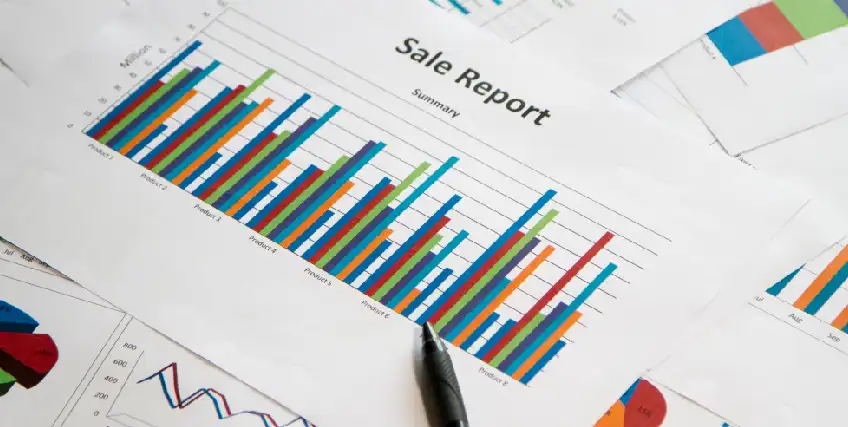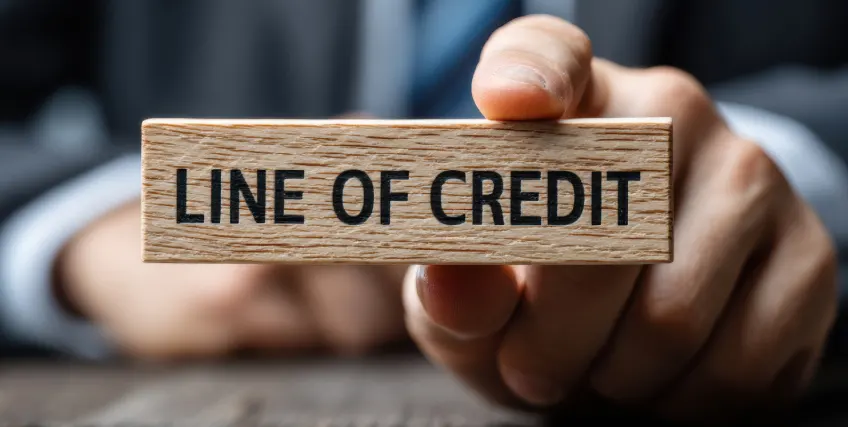What is a Line of Credit Business Loan for Small Business?
September 08, 2025 | Last Updated on: September 08, 2025

Sometimes, small businesses need money. While there are many types of financing available to small business owners, not all funding options are right for all businesses. Term loans, for instance, have a long application process and underwriting period, high eligibility requirements, and can saddle your business with expensive monthly payments.
When you’re looking for fast access to funding, a line of credit business loan may be a better solution.
- Learn what a line of credit business loan is and how to get one.
- Understand what you can use a business line of credit
- Explore some of the most common uses of the best business lines of credit for small business.
What is a line of credit business loan?
More commonly referred to as a business line of credit, a line of credit business loan is a mix of a loan and a business credit card.
Like a loan, a borrower is approved for a maximum amount. However, instead of getting that money as an upfront, lump sum payment in their business bank account, it becomes available as a line of credit.
Like a credit card, a borrower can draw on that credit line to make business purchases when they need money and then pay it back, plus interest, to retain access to the full amount. This is because it’s a revolving line of credit.
Many traditional lenders like banks and credit unions, as well as online lenders, offer a line of credit business loans. These flexible funding solutions allow entrepreneurs to have cash flow and working capital available to fall back on if money gets tight.
Business line of credit rates tend to be higher than term loans but, again, you only pay interest on what you use. Plus, with short repayment schedules, you can get out of debt quickly.
How does a line of credit business loan work?
A business line of credit is a cash equivalent, and it works like withdrawing money from a bank. When you tap into your line of credit, you’ll deposit a withdrawal right in your business checking account. Then, you can use that money like cash and pay it back when you have some more working capital.
How do you get a line of credit business loan?
The best business lines of credit for small business have lower eligibility requirements than term loans, and much faster funding.
Although different lenders have different minimum FICO credit scores, annual revenue, and time in business requirements, they all tend to be much less stringent than traditional small business loans. Each loan application process is different, but the process usually looks like this:
- Determine how much funding you need: A business line of credit is a great asset for virtually any business, but business loan line of credit interest rates tend to be high, so you don’t want to be tempted to draw too much. You should apply only for a funding amount that will help cover essential expenses and support priority business initiatives without drowning your business in debt.
- Research lenders: When it comes to a business line of credit, there are many providers out there. The best business line of credit for small business really depends on your situation. You’ll have to research qualification requirements, funding amounts, and repayment terms to find the right partner for you.
- Apply: Most lenders let you apply online and can make a credit offer within a few days. Your application is subject to credit approval and business owners with good personal credit scores and business credit scores will qualify for a better business line of credit rates and terms than those with bad credit.
- Receive funding: Once approved, some lenders can give you access to funds within a few days.
How can you use a line of credit business loan?
As we mentioned earlier, a line of credit business loan is a cash equivalent. That means you can use it for a wide range of business needs. As such, it’s a useful asset for businesses in any industry.
Some of the most common uses of a business line of credit include:
- Increasing cash flow to cover overhead or operational expenses, especially for invoice- or contract-based businesses that have a delay in receivables.
- Paying for emergency or unforeseen expenses, like broken equipment or sudden price hikes on supplies.
- Navigating periods of high inflation.
- Covering expenses during seasonal slowdowns, like for restaurants or gift shops in resort towns.
- Purchasing inventory to take advantage of wholesale and other business opportunities.
- Financing marketing campaigns to help acquire more customers.
- Funding expansion into new commercial real estate or new markets.
Again, a line of credit business loan is effectively cash, making it a flexible asset for any company. The best small business line of credit loans provide working capital when you need it, without the strict monthly payment schedule.
Pros and cons of a line of credit business loan
Business lines of credit offer several distinct advantages over traditional loans. However, they also have a few drawbacks.
Pros
- Lower eligibility requirements: Less stringent qualification allows business owners with a bad credit history and startups to get access to capital.
- Fast funding: Some lenders may offer same-day funding.
- Flexibility: You only pay interest on what you use, allowing small business owners to plan how and when they’ll use borrowed capital more effectively.
- No collateral: Typically, business owners can qualify for an unsecured line of credit, meaning you don’t have to provide a personal guarantee or put up business assets to secure the loan.
Cons
- High interest rates: Even the best business lines of credit for small business will likely have higher interest rates than both short-term or long-term business loans. The trade-off is that you’ll likely draw lower amounts than you’d borrow with a term loan.
- Lower funding amounts: Typically, line of credit business loans have lower funding limits, making them a less appealing choice for established businesses in need of significant funds.
Conclusion
Line of credit business loans — or business lines of credit — are excellent assets for businesses in need of fast funding, with lower eligibility requirements and faster turnaround times than traditional business loans.
Although business line of credit rates are higher than other financing types, you only pay interest on what you use, giving you greater control over your debt. If you never need to use your line of credit, you may not pay any interest as there are usually no annual fees. Not to mention, you won’t pay the origination fees, maintenance fees, prepayment penalties, and other costs associated with traditional loans.
FAQs
What is a business line of credit?
A business line of credit, also known as a line of credit business loan, is a type of business financing that is part loan, part credit card. With a line of credit, you’ll have access to a maximum loan amount. However, you only pay interest on the amount you debit from the line, rather than the full credit amount. That way, you can get capital when you need it without being on the hook for monthly repayment terms.
What are the best business lines of credit for small business?
Some of the best business line of credit providers include Fundbox, American Express, Wells Fargo, and Fundible.
How can you use a line of credit business loan?
A line of credit business loan is a cash equivalent. When you draw upon it, you’ll get cash in your business bank account. As such, you can spend it just as you would cash, allowing you to address basically any business need.
What are the pros and cons of a business line of credit?
The pros of a business line of credit is that it’s much easier to qualify for than a traditional loan, and it offers much faster funding. That makes it a great choice for startups and new business owners who don’t have the creditworthiness for other loans. The cons, however, are that business loan line of credit interest rates are high and they tend to have lower credit limits than traditional loans, which also have lower interest rates.
Is a business line of credit better than a traditional loan?
Traditional business loans and business lines of credit are just different. They’re both valuable financing options for small businesses, but each is better suited to different business situations.




